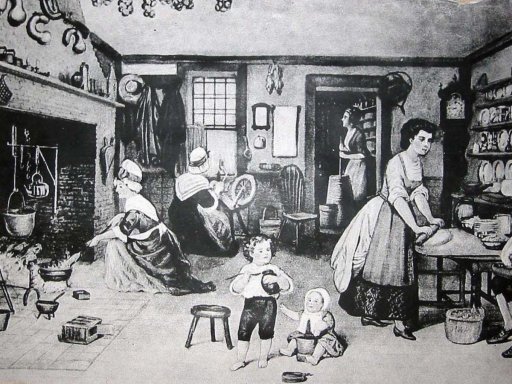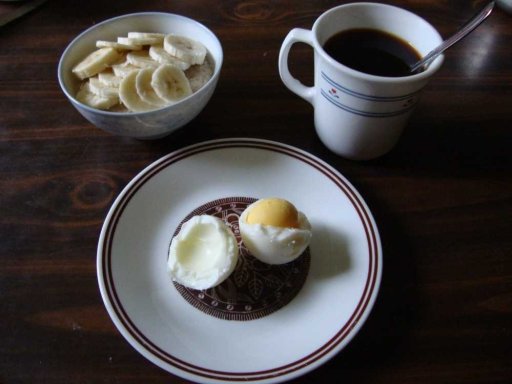Big, late-night dinners can worsen acid reflux and contribute to weight gain.
Here's what a typical weeknight looks like for me:
I get home around 8pm, throw together some "dinner" (usually leftovers or something from the freezer), watch a few episodes of a show on Netflix, and go to bed.
For many of us, this nighttime meal is the most substantial thing we eat all day.
That's a big problem, according to physician Jamie A. Koufman.
In a recent op-ed piece for the New York Times, Koufman describes how late-night dining — especially when it consists of a heavy meal followed by little or no activity — can screw up the systems our bodies rely on to process food. Proper digestion is critical for absorbing the nutrients in what we eat and discarding the stuff we don't.
Eating late can also worsen acid reflux, a fairly common (around 40% of Americans have it) condition that causes everything from heartburn and indigestion to coughing, hoarseness, and asthma. (To find out if you have acid reflux, you should see a doctor. In the worst cases, acid reflux can progress into something more serious, including a rare form of cancer.)
Why Dinner Is To Blame Our bodies aren't designed to eat a big meal and collapse on the couch or the bed afterwards. Sitting upright helps us digest — it lets gravity do the work of keeping the contents of our stomach down. In people with heartburn, laying down can cause the acid in the stomach to leak out into the esophagus, or "foodpipe," causing reflux.
Since the stomach takes about three hours to empty itself, waiting at least this amount of time before laying down or sleeping is a good idea.
Koufman's thinking — backed by decades of sage medical advice — has been borne out by recent research. A 2005 study of the nighttime eating habits of 350 people found that eating dinner within 3 hours of bedtime was positively associated with their risk of developing reflux symptoms, even after controlling for smoking, body mass index, and other factors that could affect heartburn.
Waiting so long to eat that you are ravenous by dinnertime can also cause you to eat too quickly and overstuff yourself. Since your brain takes about 20 minutes to register a full stomach, you could eat too much before you know you're satiated. If this is happening more than one or two nights a week, it could be causing you to gain weight.
A Modern Dilemma A Light In Time
A Light In Time
If eating a large meal and crashing at the end of the day seems inevitable, it's helpful to remember that for hundreds of years, Westerners ate only one large meal a day — typically in the middle of the day. The Romans, for example, dined only once, usually around noontime. In colonial America, one main meal was served in the middle of the day. Europeans, too, noshed almost exclusively at noon, when the most natural light was available for cooking, with the exception of farmers and laborers, who woke up early and typically grabbed a snack of something leftover from the day's previous meal.
Most Westerners owe breakfast to the long and early work hours of the Industrial Revolution. Heavy laborers needed a morning snack to fuel them for the daily grind. Factory workers couldn't go home in the middle of the day, so between that morning meal and their supper at home, workers took snack breaks at the canteens and food carts that began popping up outside factories during this time. Here, lunch may have been born.
As the Industrial Revolution ended, work in heavy labor gave way to office jobs (hello, 9-5!), the middle class emerged, and at-home evening meal became an American tradition and a marker of social status.
That evening meal is now our biggest, fattiest tradition.
Create Better Habits Flickr/yoonie87
Flickr/yoonie87
Changing mealtimes can be tricky, especially when it seems we have to erode decades of history in the process.
Here's how to do it: Start small. If you normally don't eat a whole lot during the day, it might help to start snacking (healthily!) so you don't overeat once you get home.
Next time you know you'll be home late, try this: Have a small, high-protein breakfast and don't skip lunch in the afternoon. No time to cook in the morning? Keep hard-boiled eggs handy, or microwave a packet of instant oatmeal and stir in a few nuts. Keep it light at first so your body can adjust to regular mealtimes. Around 1pm (or about 4 hours after breakfast), grab a light meal like a salad with fish or chicken.
When you get home, you'll be less famished and more conscious about what you're putting into your body. Avoid indigestion after dinner with some light activity: Do the dishes, wash some laundry, or take a walk around the block. Your body will thank you.
Here's what a typical weeknight looks like for me:
I get home around 8pm, throw together some "dinner" (usually leftovers or something from the freezer), watch a few episodes of a show on Netflix, and go to bed.
For many of us, this nighttime meal is the most substantial thing we eat all day.
That's a big problem, according to physician Jamie A. Koufman.
In a recent op-ed piece for the New York Times, Koufman describes how late-night dining — especially when it consists of a heavy meal followed by little or no activity — can screw up the systems our bodies rely on to process food. Proper digestion is critical for absorbing the nutrients in what we eat and discarding the stuff we don't.
Eating late can also worsen acid reflux, a fairly common (around 40% of Americans have it) condition that causes everything from heartburn and indigestion to coughing, hoarseness, and asthma. (To find out if you have acid reflux, you should see a doctor. In the worst cases, acid reflux can progress into something more serious, including a rare form of cancer.)
Why Dinner Is To Blame Our bodies aren't designed to eat a big meal and collapse on the couch or the bed afterwards. Sitting upright helps us digest — it lets gravity do the work of keeping the contents of our stomach down. In people with heartburn, laying down can cause the acid in the stomach to leak out into the esophagus, or "foodpipe," causing reflux.
Since the stomach takes about three hours to empty itself, waiting at least this amount of time before laying down or sleeping is a good idea.
Koufman's thinking — backed by decades of sage medical advice — has been borne out by recent research. A 2005 study of the nighttime eating habits of 350 people found that eating dinner within 3 hours of bedtime was positively associated with their risk of developing reflux symptoms, even after controlling for smoking, body mass index, and other factors that could affect heartburn.
Waiting so long to eat that you are ravenous by dinnertime can also cause you to eat too quickly and overstuff yourself. Since your brain takes about 20 minutes to register a full stomach, you could eat too much before you know you're satiated. If this is happening more than one or two nights a week, it could be causing you to gain weight.
A Modern Dilemma
If eating a large meal and crashing at the end of the day seems inevitable, it's helpful to remember that for hundreds of years, Westerners ate only one large meal a day — typically in the middle of the day. The Romans, for example, dined only once, usually around noontime. In colonial America, one main meal was served in the middle of the day. Europeans, too, noshed almost exclusively at noon, when the most natural light was available for cooking, with the exception of farmers and laborers, who woke up early and typically grabbed a snack of something leftover from the day's previous meal.
Most Westerners owe breakfast to the long and early work hours of the Industrial Revolution. Heavy laborers needed a morning snack to fuel them for the daily grind. Factory workers couldn't go home in the middle of the day, so between that morning meal and their supper at home, workers took snack breaks at the canteens and food carts that began popping up outside factories during this time. Here, lunch may have been born.
As the Industrial Revolution ended, work in heavy labor gave way to office jobs (hello, 9-5!), the middle class emerged, and at-home evening meal became an American tradition and a marker of social status.
That evening meal is now our biggest, fattiest tradition.
Create Better Habits
Changing mealtimes can be tricky, especially when it seems we have to erode decades of history in the process.
Here's how to do it: Start small. If you normally don't eat a whole lot during the day, it might help to start snacking (healthily!) so you don't overeat once you get home.
Next time you know you'll be home late, try this: Have a small, high-protein breakfast and don't skip lunch in the afternoon. No time to cook in the morning? Keep hard-boiled eggs handy, or microwave a packet of instant oatmeal and stir in a few nuts. Keep it light at first so your body can adjust to regular mealtimes. Around 1pm (or about 4 hours after breakfast), grab a light meal like a salad with fish or chicken.
When you get home, you'll be less famished and more conscious about what you're putting into your body. Avoid indigestion after dinner with some light activity: Do the dishes, wash some laundry, or take a walk around the block. Your body will thank you.
No comments:
Post a Comment